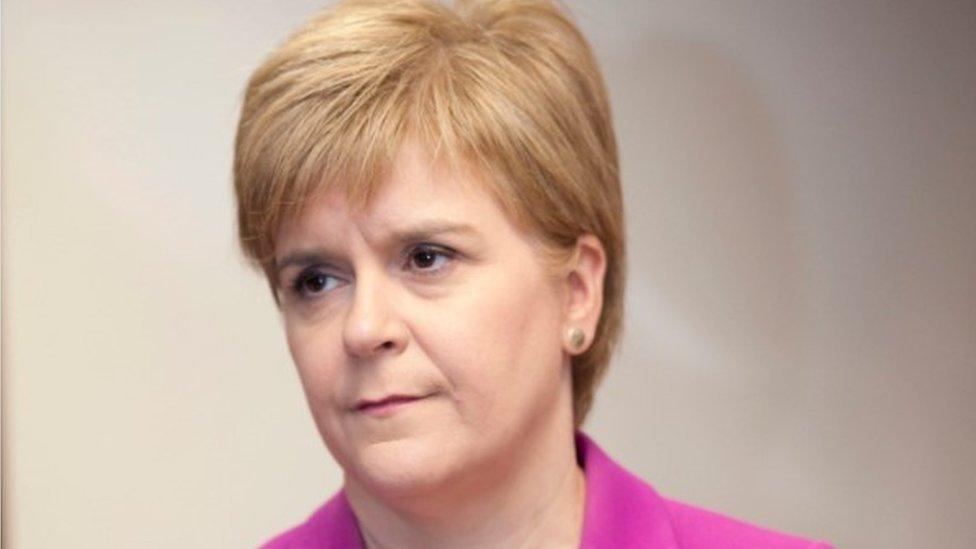Nicola Sturgeon miscarriage: First minister reveals baby loss
- Published

Scotland's First Minister Nicola Sturgeon has spoken for the first time about her "painful experience" of losing a baby in 2011.
Ms Sturgeon, 46, who has no children, revealed that she had a miscarriage while she was deputy first minister.
She said she hoped allowing the details to be written about in a new book would challenge assumptions made about women.
"Sometimes... having a baby just doesn't happen - no matter how much we might want it to," she added.
'Personal choices'
In the book, Scottish National Party Leaders, Ms Sturgeon spoke about how she lost the baby when she was 40, shortly before the 2011 Scottish parliamentary election campaign period.
Ms Sturgeon, who is married to SNP chief executive Peter Murrell, was in the early stages of her pregnancy and preparing to share the news when the miscarriage occurred.
She told author Mandy Rhodes that instead of dealing with her grief at home on 3 January 2011 she attended the 40th anniversary of the Ibrox disaster, in which 66 Rangers football supporters were crushed to death.
In a statement released following the publication of extracts from the book in the Sunday Times magazine, the first minister said: "This was obviously a painful experience for Peter and I and while Mandy has known about it for some time, she has always respected our decision not to talk about it publicly.
"I gave her the go ahead to make reference to it now in the hope that it might challenge some of the assumptions and judgements that are still made about women - especially in politics - who don't have children.
"There are many reasons why women don't have children. Some of us simply don't want to, some of us worry about the impact on our career - and there is still so much to do, through better childcare, more progressive working practices and more enlightened attitudes, to make sure we don't feel we have to choose.
"And sometimes, for whatever reason, having a baby just doesn't happen - no matter how much we might want it to.
She added: "For me, as for many women, all of these things have been true at different times of my life - the point is that judgements and assumptions shouldn't be made about what are personal choices and experiences."
On Sunday morning, Ms Sturgeon also : "Thanks for all your kind messages this morning. @PeterMurrell & I really appreciate it."
In extracts from the book in The Sunday Times Magazine, Ms Sturgeon said she was uncertain if she could have been a mother as well as leading Scotland's devolved government.
She said: "If the miscarriage hadn't happened, would I be sitting here as first minister right now? It's just an unanswerable question. I just don't know.
"I've thought about it but I don't know the answer. I'd like to think 'yes', because I could have shown that having a child wasn't a barrier to all of this, but in truth I don't know."
Miscarriage
If a pregnancy ends before the 24th week, it is known as a miscarriage
Miscarriages are quite common in the first three months of pregnancy - about one in five confirmed pregnancies ends this way and are often caused by problems with the foetus
Certain long-term health conditions in the mother, such as diabetes, high blood pressure or thyroid problems, can also increase the risk of a miscarriage
A later miscarriage may also be due to an infection, a poorly developed placenta or a weak cervix (neck of the womb) that opens too early in the pregnancy
Source: